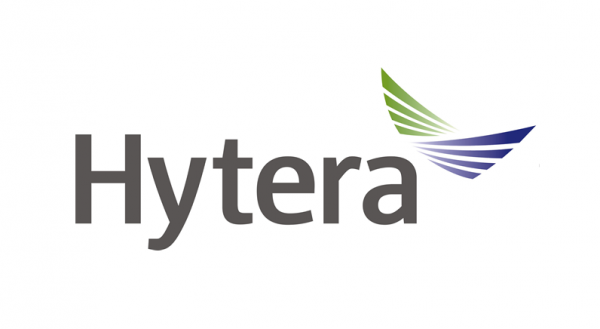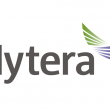Judge sides with Motorola Solutions, denies Hytera request for retrial, reduced damages
A federal-court judge this week released an order denying Hytera’s requests for a retrial or a reduction in the $764.6 million in damages for utilizing Motorola Solutions trade secrets and copyrighted software code to develop much of its DMR product portfolio.
“Hytera has not met the high standard for judgment as a matter of law, or for a new trial, or for reconsideration of previous orders or remittitur,” Judge Charles Norgle wrote in the order.
“The jury and the court were not biased, the procedures in this case were proper, the legal decisions were correct, the legal elements of Motorola’s claims were met, and the jury returned a verdict and award that are proper under the law and supported by overwhelming evidence that was submitted at trial—evidence, the court notes, which was robustly and meticulously challenged by skilled counsel for Hytera at each and every turn.”
Norgle’s ruling noted that he rejects “each and every argument raised by Hytera in its … motion and denies the motion in its entirety, except as to the issue of the advisory jury verdict on the equitable issues.” On these equitable issues, Norgle ordered both sides to submit proposed findings of fact on the matter.
Norgle’s order reaffirms the judgment he entered in March against Hytera—a decision that upheld the unanimous jury verdict issued in February that awarded Motorola Solutions all damages that it sought in the case, which was argued over a four-month period. The massive damages award forced Hytera’s U.S. divisions to seek Chapter 11 bankruptcy protection in May.
Motorola Solutions applauded the Norgle order in a statement provided to IWCE’s Urgent Communications.
“Motorola Solutions is pleased by Judge Norgle’s decision to reject Hytera’s motion for a new trial, upholding the jury’s verdict that Hytera misappropriated Motorola’s trade secrets and infringed Motorola’s copyrights, as well as the jury’s award of over $764.5 million to Motorola,” according to the Motorola Solutions statement.
“Motorola Solutions is proud to be a pioneering technology and innovation leader, and we remain committed to vigorously pursuing our patent infringement, copyright infringement and trade-secret-theft lawsuits against Hytera.”
Hytera expressed a different sentiment about the ruling in its statement to IWCE’s Urgent Communications.
“Hytera is very disappointed by the district court’s refusal to reduce the damages awarded or, at a minimum, to order a new trial,” according to the Hytera statement. “Hytera will appeal this ruling and any other adverse decisions on the motions still pending before the district court to the United States Court of Appeals, Seventh Circuit.
“During this legal process, Hytera will continue to provide the same outstanding support it always has to both its dealers and customers.”
This order does not address Motorola Solutions’ request for injunctive relief that would prohibit Hytera from selling key offerings in its portfolio of DMR offerings. Motorola Solutions attorneys have asked Norgle for a worldwide permanent injunction, primarily because Hytera has continued to sell the contested DMR products since Norgle entered his judgment in March.
Norgle’s decision on the injunction has been anticipated throughout the LMR industry. If Motorola Solutions’ request for injunctive relief is granted, Hytera impact on the market would be greatly diminished, according to most sources. Without any kind of injunction, Hytera could continue to sell its DMR products as it has for years, albeit under a new entity within U.S. established during the Chapter 11 bankruptcy proceeding.
Of course, the driving factor in the need for Hytera’s U.S. divisions to declare bankruptcy is the $764.6 million in damages that Hytera owes Motorola Solutions as a result of the trade-secrets and copyright case.
Absent the massive federal-court award to Motorola Solutions, the Hytera U.S. divisions would remain viable businesses—a fact acknowledged in the Motorola Solution motion for dismissal. For the year ending on Dec. 31, 2019, the two primary Hytera U.S. divisions generated combined revenues of $42.9 million, although the net operating income resulted in a loss of about $100,000, according to the Huang declaration.
Hytera attorneys asked Norgle for a new trial in the matter, but the judge denied the request.
“Hytera raises three distinct arguments claiming it is entitled to judgment as a matter of law: 1. Motorola has failed to satisfy the elements of a trade-secret claim; 2. Motorola’s trade-secret claims are barred by the statute of limitations; and 3. Motorola has failed to state a copyright claim for several reasons,” Norgle states in his order.
“Hytera cannot overcome its high burden on any of these arguments, as the evidence supports the verdict. The court will not overturn the jury verdict unless no reasonable juror could have found in favor of Motorola, and Hytera cannot meet this burden, given the evidence presented in this case.”
During the federal-court trial that began last November, Hytera attorneys acknowledged that three former Motorola (the company had not yet changed its name to Motorola Solutions at the time) employees—Samuel Chia, Y.T. Kok and G.S. Kok—accessed more than 7,000 Motorola documents prior to each of them leaving and joining Hytera shortly in 2008. However, Hytera attorneys described the three engineers as “bad apples” who did not share with anyone else at Hytera that the DMR trade secrets and software were taken from Motorola.
In his order, Norgle notes evidence that G.S. Kok—the first of the three Motorola employees to be hired by Hytera—expressed surprise that Hytera had not been able to develop even a prototype DMR system on its own. At the request of Chia, Y.T. Kok—still working at Motorola at the time—began downloading technical documents that provided solutions to DMR problems identified by Hytera engineers, according to Norgle’s order.
In some cases, Hytera copied the Motorola software code entirely—“including, notably, code which contained identical misspellings at points,” Norgle notes in his order.
In other instances, Hytera officials attempted to hide the use of Motorola software code in its DMR products, according to Norgle.
“Hytera argues that the jury should not have been instructed on spoliation of evidence because the court did not make a finding that Hytera acted intentionally in bad faith in destroying evidence,” Norgle’s order states. “Evidence in the record supports such a bad-faith finding, however.
“In June 2008, for example, G.S. Kok wrote to Sam Chia that they ‘needed to re-write softwares to look different from Motorola’ in order to ‘protect the company from impending lawsuits. Huang and Chia deleted evidence of misappropriation to conceal their theft.”
Hytera attorneys have argued that the damages are unfair, because they are based on Hytera’s worldwide sales of DMR products. Given that the case is before a U.S. court, Hytera believes that any damages should be calculated based solely on U.S. sales.
But Norgle disagreed with this notion in his order, noting that “other courts have reviewed and agreed with this court’s reasoning or come to similar conclusions as to the reach of the DTSA [Defend Trade Secrets Act] and the ITSA [Illinois Trade Secrets Act].”















